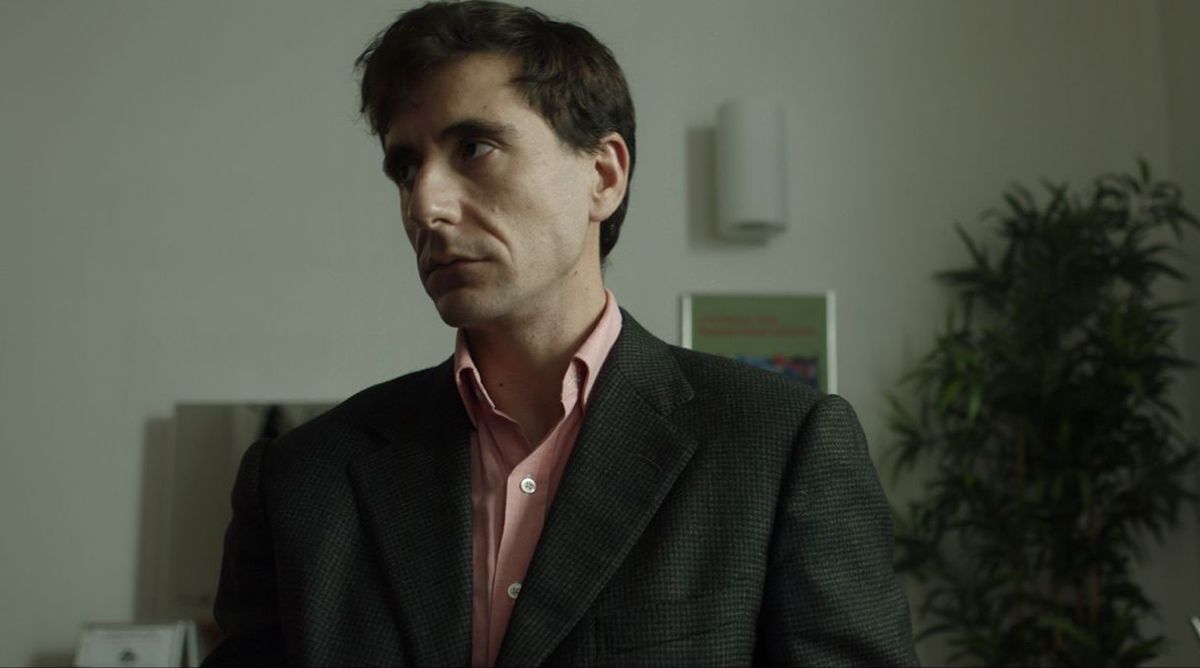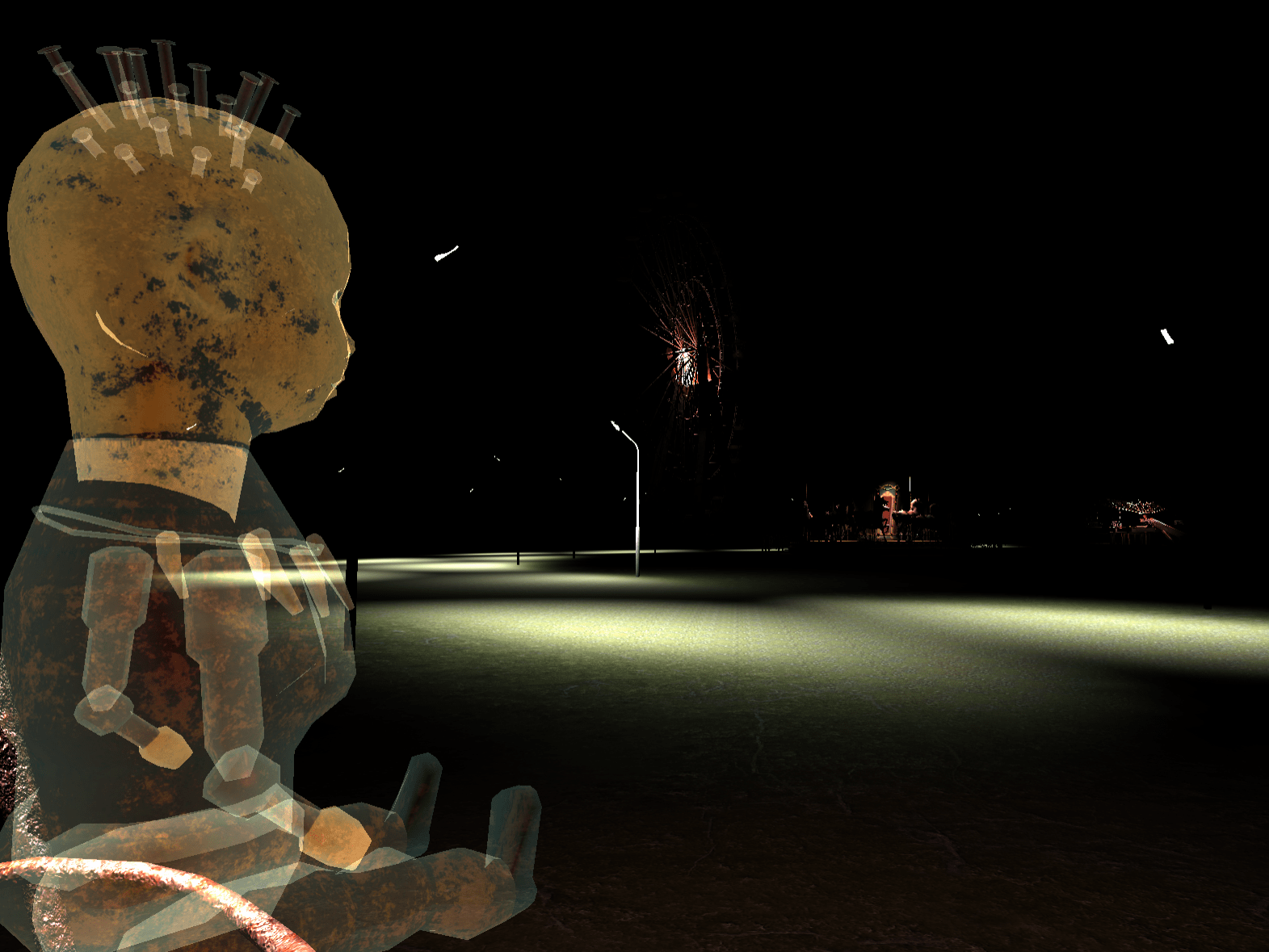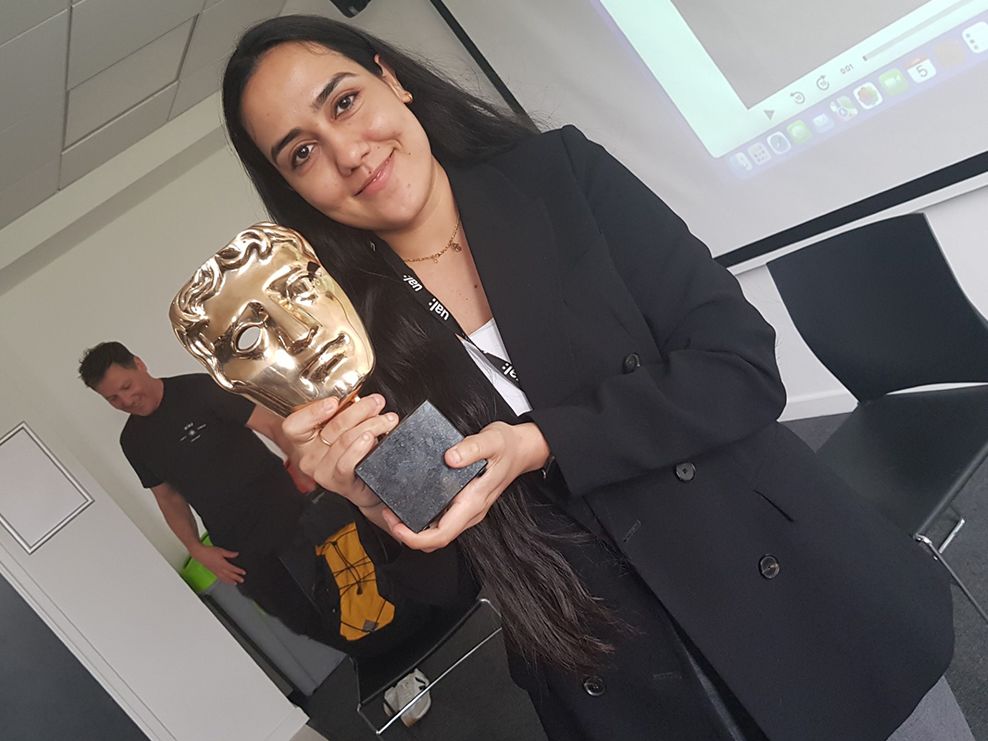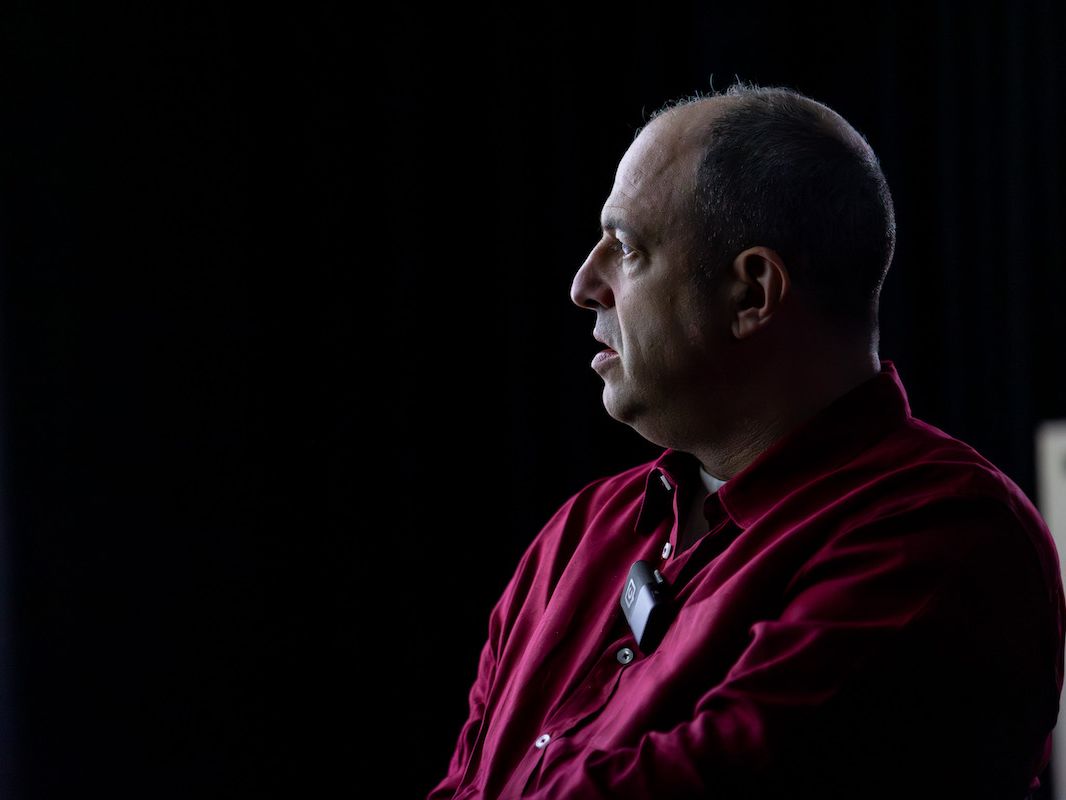
Course Spotlight: Ben Sutherland on MA Screenwriting

- Written byChloe Murphy
- Published date 29 February 2024

The journey of creative practitioners is rarely linear. As we grow our skills, experiment with different forms and find inspiration in the world around us, we often feel inspired to explore the possibilities of new and diverse fields.
Postgraduate study offers a useful opportunity to not only build on our existing expertise, but also to consider futures within different disciplines and industries. At London College of Communication (LCC), we offer MA courses in areas ranging from design and social innovation to filmmaking, journalism and photography – all of which have been designed to support creatives to make, innovate and collaborate in ways that enhance their personal practice.
Our MA Screenwriting course focuses on developing writers for film, television and radio. As one of the UK’s leading media scripting courses, it harnesses industry connections, practical experience and theoretical foundations to support students as they build their writing voice, skills and research methods, and graduate with an effective professional portfolio.
Like many of our Master's courses, MA Screenwriting is home to a community of practitioners from the creative industries and beyond, all of whom bring dynamic perspectives and ideas drawn from both their personal and professional experiences.
Many students may not have previously worked in the screen industries, but are selected on the basis of their passionate commitment to writing for film, television and radio. This multiplicity of ideas and approaches helps to create a course environment that encourages cross-collaboration, ideas-sharing and communication in ways that excite, challenge and inspire.
Journalist Ben Sutherland enrolled on MA Screenwriting in Autumn 2023. He shares his experiences of returning to university study, sparking sources of creative inspiration and the joy of finding new channels to bring your passions to life.
MA Screenwriting | London College of Communication
New melodies
I went into 2023 having decided that, after 22 years at the BBC as a journalist and editor, I wanted to make a leap into the world of writing fiction. I’d spent over 2 decades writing other people’s stories - now I wanted to write my own.
I’d played around with writing scripts a few times, but never taken them anywhere beyond some read-throughs with friends. I was doing it from a position of ignorance - most of what I knew about screenwriting came from reading William Goldman’s books and that episode of Friends where Joey tries his hand at writing (the first time I’d heard the phrase so critical to screenwriters, ‘inciting incident’.)
Yet I still had all these ideas for films and TV shows and bits of dialogue that I made notes of. I sometimes dream entire plots (though not always good ones – ‘workplaces realise their pension funds are going to be too expensive so start putting really unhealthy stuff in the canteens’ is one that in the cold light of day probably doesn’t have much mileage). But I didn’t know how to turn them into something that a producer would actually read.
I felt like someone who has new melodies constantly wandering through their head, but doesn’t know how to write music - so I began to look at how I could change that.
Initially, I was thinking of doing something like a short course, just to pick up the basics, but from the moment I found the MA Screenwriting course page on the UAL website, I knew this was the course I wanted to be on more than anything else.

A perfect introduction
The application process is certainly a thorough test - requiring story ideas, personal statements and, critically, a 10-page screenplay.
Writing the script for the application was the most incredibly intense experience. I’d taken a huge chance on myself to go into this field. I’d soon know if I was actually any good at it at all.
After all, if I got rejected, it would be a pretty powerful indication that perhaps this wouldn’t be the best path to follow - with all the ‘what is the meaning of my life then?’ questions that would immediately follow.
The lecturers on MA Screenwriting are, after all, serious writers with long lists of credits - and awards - behind them. Course leader Kelly Marshall wrote Horrid Henry and London Bridge; Mark Clompus’ name is on nearly 100 episodes of Doctors; one of Tessa Sheridan’s works won a Palm d’Or at Cannes. These are people who really know good writing.
Happily for me, the screenplay I wrote - a 10-page short film about 2 women in a stand-off amidst an armed conflict in central Africa - got me through to the interview stage.
The interview itself was, in the best way, acutely rigorous - a massively thorough examination of my ideas for screenplays: endings, themes, potential audience. It was, really, a perfect introduction into what the course would be like.

The first week, and after
The other screenwriters on the course are so super-talented, which was obvious from the moment I met them.
That first couple of days I had a lot of nervous energy, but the course channelled it in exactly the right way. Before long, we were working in groups and coming up with ideas for scripts.
We learned that inspiration can come from anywhere - local newspapers, dreams, song lyrics. Our group came up with a pitch for a short film based on the dancing plague of 1518, which was set in the modern day and instead spread by TikTok.
It was so exciting to be letting these creative thoughts turn into something more real. I’ve always loved working with others, but it’s so important for those others to be the right people - people who get you and what you’re thinking and where you’re going with your ideas. It’s that thing of having someone else to throw these thoughts at and know that they’re not going to laugh at you, but listen and develop what you say - and through that, turn it into something potentially really great.
And the real joy of MA Screenwriting is spending time in a room - and a WhatsApp group - full of those people.
I feel like I never stop writing during lectures. I don’t think I’ve ever felt more engaged in learning anything in my life. It’s fascinating - after all, I’ve been watching films and TV all my life, but I’ve never understood what’s actually going on. Suddenly it all clicks: you find yourself realising exactly why some things are great and some not so much.
In fact, I’ve found the course has absolutely - and likely permanently - transformed the way I watch films and TV. Suddenly, I’m actively thinking about everything I view. I find myself looking for the protagonist (not always obvious!), the set-up, the move from Act 1 into Act 2, the midpoint. All this stuff suddenly starts leaping out.

5-minute screenplays
Right at the start, we were told that we could submit short 5-minute screenplays that students on MA Film could consider to make as their first term project.
I had a go, with a screenplay titled The Green Room, and after a couple of weeks received the lovely news that it had been picked.
After a little redrafting, it went over to producer Keke Zhang and director Cindy Pardo. I’m absolutely thrilled that - even if it’s only 5 minutes long - a film that I’ve written was produced by the end of my first term.

Brilliant, inspiring and fulfilling
To prospective students, I'd just say that you have to really want this.
If you do, you’ll love it. Finding a way to bring my passion to life sometimes feels like a glowing energy that I want to throw out into the world from my fingertips.
If you don’t feel like that, well, you’ll probably not make it past the application phase anyway. But either way, you’ll get out what you put in. That might be a cliche, but sometimes cliches become cliches because they’re true, and that’s absolutely the case here.
What’s brilliant is how creative and supportive the environment is. No-one is going to laugh at any idea you have. What they will do is give you feedback that makes you go: “Yes, that’s brilliant, hang on, what if I then do THIS?’ and suddenly, you’re writing pages and pages and you’ve got no idea where the time went.
It’s brilliant, inspiring and fulfilling. You’ll struggle to find anywhere else better connected with industry than LCC.
And if you feel - as I do - the deep burning to tell your stories, then it’s going to feel like something truly special has happened.
Related links:
- Learn more about our MA Screenwriting course.
- Explore the work of our Screen School.
- Find out more about postgraduate study at LCC.



